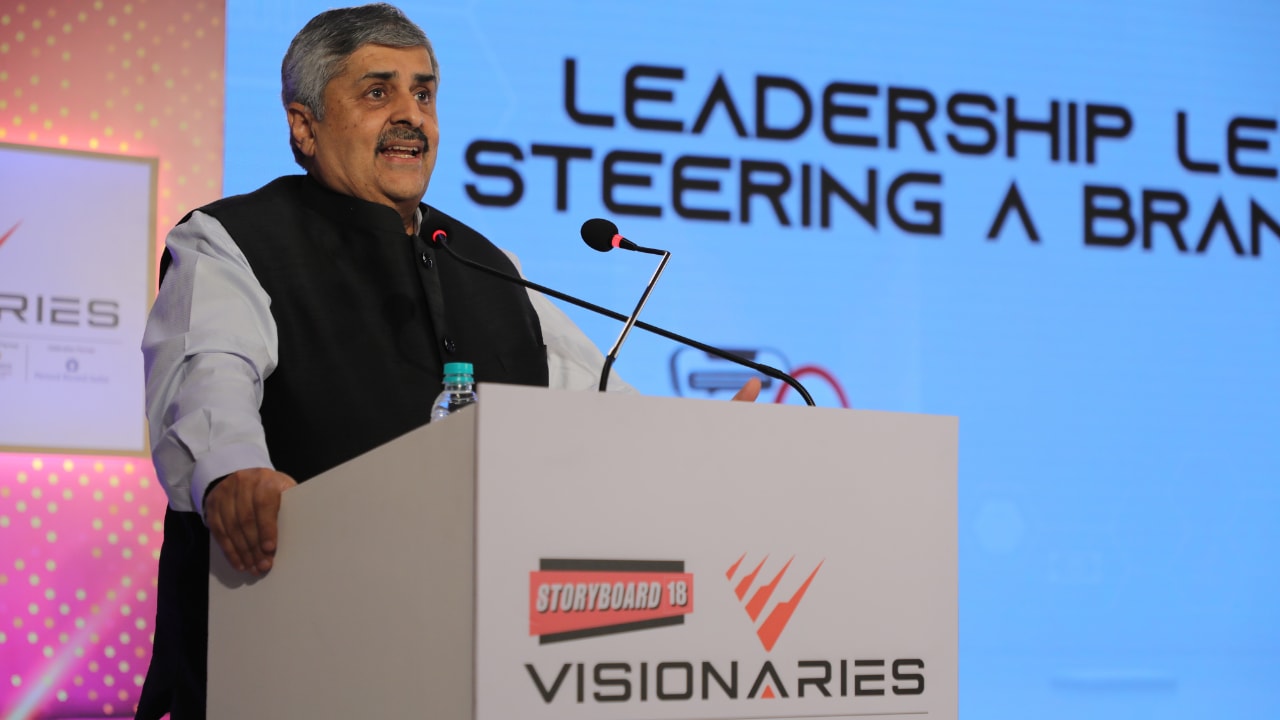At the third edition of Storyboard18 Visionaries in Mumbai, top marketers across some of the biggest brands in the country were felicitated for the deep impact that they have made through their work which has catapulted their respective brands and companies to unparalleled success. The third chapter featured not just felicitations but also included important discussions from industry stalwarts that shed light on the dos and don’ts of building successful brands.
Bharat Puri, managing director at Pidilite Industries, the maker of Fevicol shared some key tips and tricks that a marketer should keep in mind when building a brand that can stand the test of time.
“I’ve spent close to 40 years across three iconic brands. I started at Asian Paints and spent a considerable amount of time there before I decided that I wanted to move to a tastier product and chose chocolate. I spent another 17 years in Cadbury and then finally Pidilite,” he said.
Puri emphasised that amongst a successful group of brand leaders like the one at The Visionaries, it makes no sense for him to share success mantras on inspirational positioning and creative briefs, etc. Instead he chose to focus on what some of the rules and principles were that helped him steer the brands associated with him along their journeys.
“I always believe that good brands begin and end with the consumer,” he said “The answer always lies with the consumer. A lot of times the word ‘insight’ is misused and lost. We confuse any observation as insight,” he added.
Sharing a story about Cadbury, Puri said that Cadbury’s 5 Star sales had plateaued many years ago. Back then they tried a lot of things – they changed the advertising, did a relaunch, etc. But it wasn’t really working. When they discussed internally, everyone spoke about how the brand needs refreshment and a fresh positioning. “Our teams went out and met the consumers. We did this research in Madurai and in Lucknow, and the consumer said that 5 Star is Cadbury’s most heat-hardy product i.e it lasts the best in the heat. But our technical guys, in the process of making the product more heat-hardy every year, didn’t realise that it was now getting stuck in people’s teeth. And no market research was picking that up.”
All we did then was re-did the old product, came up with new advertising – ‘Johnny Johnny’ and “Muh Mein Ghul Jaaye’. Sales in two years went up by 20 percent. It didn’t need any other change, no rejuvenation, no refreshment. This is the power of good consumer insight,” Puri shared.
He said, “My advice to marketers is that when people tell you that brands are tired and categories have matured, normally it’s the manager who is tired. Start with the consumer.”
He shared a second piece of advice as well. “Superior products always win,” he said. “New and improved is normally just new and improved for advertising purposes. Consumers are very smart.”
He shared another example of Cadbury Silk. Back then, one of the most frustrating sights used to be when people brought back bags of chocolate from abroad, Puri said. “When we did research, consumers said that the taste of chocolate is different abroad than it is in India.”
The brand did blind taste tests and we were testing our own product against our own. A UK Cadbury vs an Indian Cadbury. The result was the launch of Silk.
“Everyone said, how can you launch a product at a minimum price point of Rs.50? Ten years later, Silk is now a four digit crore brand and has not impacted the mother brand at all,” Puri said.
Lastly, Puri also emphasised on the importance of effective communication. “The only thing that changes consumer behaviour is great communication,” he said.
There are a couple of rules that he shared in this regard. “One, respect your creative partners. All agencies are as good or as bad as their client lists. The same agency makes great work for one client and not so great work for another client. I believe in the power of long-term relationships. In all the companies I’ve worked for, our agency relationships have been a minimum of thirty years old. Then the agency has a similar level of ownership for the brand.”
“For Fevicol, Piyush and Prasoon Pandey will be rejecting more work before it even reaches the client than we do. That’s the sense of ownership they have.”
Another example he shared was that 20 year ago, people used to not gift chocolate in India. Today, chocolate beats all other categories in gifting. In those 20 years, apart from a good product, what worked was good communication, Puri said.
“My final piece of advice is before you read the lyrics, please listen to the song. A lot of times, we’re so busy with our checklist, we forget to listen to the song and see if it makes an impact or not.”
“Don’t be afraid of making mistakes. As leaders, one of our greatest abilities is our ability to create a culture where people are not afraid of making mistakes. A lot of French philosophers said that a great characteristic of any leader is that they know where they are going. But they’re leadership quality is their ability to persuade others to go with them,” he said.
